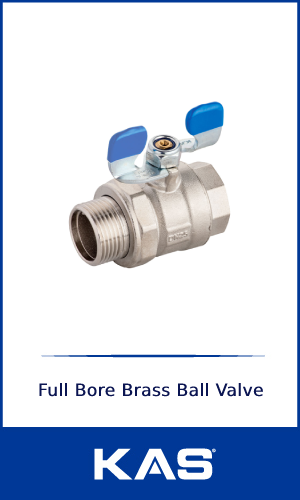What Are the Differences Between Brass and Bronze Valves?
Today, it is possible to find different types of valves in plumbing and HVAC applications. With the advancements in material science, different raw materials are preferred in such applications. Brass and bronze valves are among the common valve types. However, there are differences between brass and bronze valves, and it is important to know these differences before making a decision for the project.
What Is a Brass Valve?
A brass valve is a mechanical device that regulates the flow of liquids, gases, or other materials through a pipe or other passageway. It is typically made of brass, which is an alloy of copper and zinc, known for its corrosion resistance, durability and good thermal conductivity. There are many different types of brass valves, including gate valves, ball valves, globe valves, and others, each designed for specific applications and uses. They are widely used in many industries such as plumbing, HVAC, oil & gas, automotive, and many more.
What Is a Bronze Valve?
A bronze valve is a type of valve made from bronze, which is an alloy of copper and tin. Bronze valves are similar to brass valves in many ways, but they have a higher tin content, which makes them stronger and more resistant to wear and tear. They are also more resistant to corrosion in saltwater environments. Bronze valves are used in a variety of applications, including marine, industrial, and plumbing systems. They are available in many types such as gate valves, globe valves, and ball valves, and are known for their durability, corrosion resistance and high-pressure ratings.
What Are the Differences Between Brass and Bronze Valves?
Brass and bronze valves are similar in many ways, but there are some key differences between the two:
- Composition: Brass is an alloy of copper and zinc, while bronze is an alloy of copper and tin. The main difference in composition is that bronze has a higher tin content, which makes it stronger and more resistant to wear and tear.
- Corrosion resistance: Both brass and bronze valves are known for their corrosion resistance, but bronze is more resistant to corrosion in saltwater environments.
- Strength: Due to its higher tin content, bronze is stronger than brass. It also has a higher yield strength and tensile strength.
- Applications: Both brass and bronze valves are used in a wide range of applications, including plumbing, HVAC, and industrial systems. However, bronze valves are more commonly used in marine and saltwater environments because of their superior corrosion resistance.
- Price: Bronze valves are generally more expensive than brass valves because they are stronger and have a higher tin content.
While both brass and bronze valves have their own advantages, the choice will usually depend on the specific application and the environment in which the valve will be used.
KAS has been making your life easier since 1970 with its sanitary and heating systems products produced with quality and expert workmanship. On all the issues you want to consult; You can send an e-mail to info@kas.com.tr or call 0 216 311 35 45 for information.

 English
English